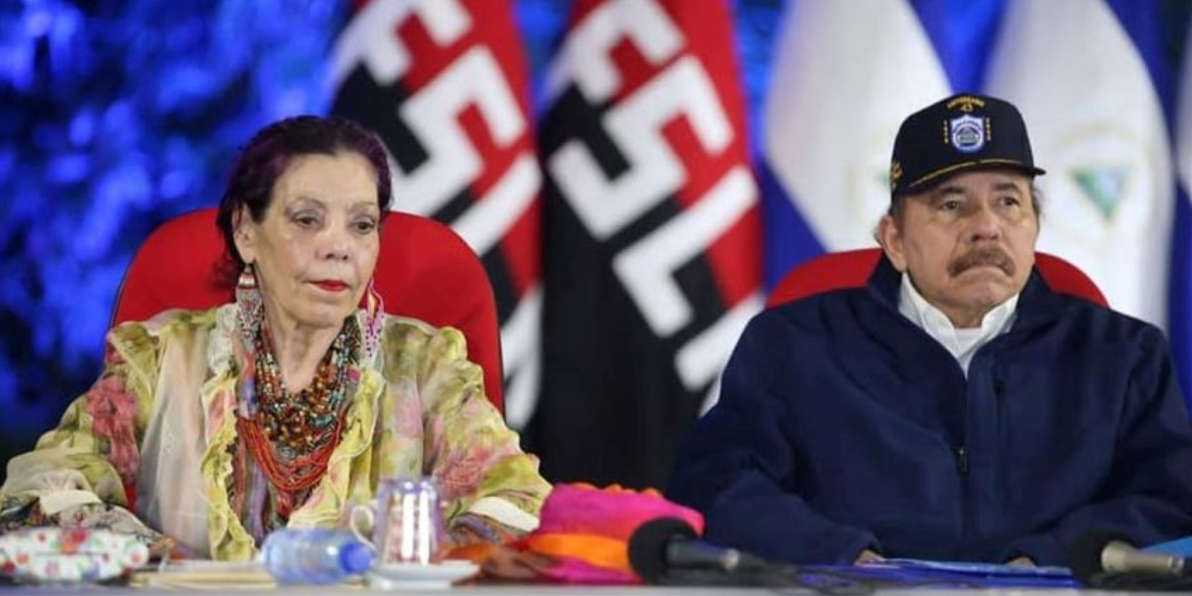In the picture
Daniel Ortega and his wife Rosario Murillo, president and vice-president of Nicaragua [19 digital, portal of the Sandinista regime].
The sanctions applied by the United States to punish the regime of Daniel Ortega have not prevented the progressive establishment of a dictatorship in Nicaragua. The recent release and expulsion of 222 political prisoners does not appear to have been the result of US pressure; nor does it signal Ortega's repentance, but rather the opposite. As Nicaragua's main commercial partner , the US could be more effective in its aims with a reduction of imports from Nicaragua: Washington has considered excluding Nicaragua from the US-Central America free trade agreement , and has also considered the extreme of prohibiting the purchase of Nicaraguan products. However, despite proclaiming such intentions, the reality is that the U.S. continues to increase its trade - and its rare trade deficit - with Nicaragua.
Trade between the United States and Nicaragua reached a record $8.304 billion in 2022, an increase of 21.97% over the previous year, which also saw a significant jump after the trade moderation of the pandemic 2020. In those two years, while political Washington has sought ways to force President Ortega to retrace the path of authoritarianism, trade between the two countries grew by 67.15%, according to U.S. Census figures.
The Nicaraguan Economics depends enormously on this trade, since about 60% of its exports are destined for the United States. Nicaragua is the only Central American country that sells more to the U.S. than it buys from it: it only purchases about 25% of its total imports there. This Nicaraguan privilege status has been pointed out by those in Washington who highlight the incongruity of sanctioning the regime of Ortega and his wife, Vice President Rosario Murillo, with isolated measures, and yet continue to reward them with this trade surplus. In 2022, the deficit for the US in these transactions rose to $3,151 million, 25.89% more than the previous year.
It is possible that the Issue of this commercial relationship will be affected throughout this year by some decisions adopted by the Biden Administration, such as the announced end of the attention of favor in sugar imports by 2023. Up to now, however, there has been a contrast between the declaration of intentions from the US in subject trade and the profit that Nicaragua continues to obtain (the Ortega-Murillo couple and their children control several important companies and benefit from exports; although the damage that may be generated in the population as a result of certain economic sanctions must be taken into account).
The release on February 9 of 222 political prisoners, who were stripped of their civil rights and nationality and immediately sent to Washington, does not seem to respond to Ortega's need to negotiate the easing of existing sanctions. He himself has stressed that this decision was taken unilaterally, without any agreement with the U.S.; Washington was only asked about its willingness to receive the released prisoners. The White House, for its part, insisted that no concession had been made to the Nicaraguan authorities of the FSLN (Sandinista National Liberation Front) to carry out this gesture. The measure would respond, rather, to Managua's desire to get rid of a problem, while at the same time allowing it to display the humanitarian charter, even if it emphasizes its dictatorial character.
There has been, of course, no relaxation of the sanctions, although it could be asked whether the fact that the US has continued to give Nicaragua commercial privileges allows the Nicaraguan regime to think that by offering some compensation from time to time it can avoid more serious sanctions, such as the cut or prohibition of imports by the North American power.


